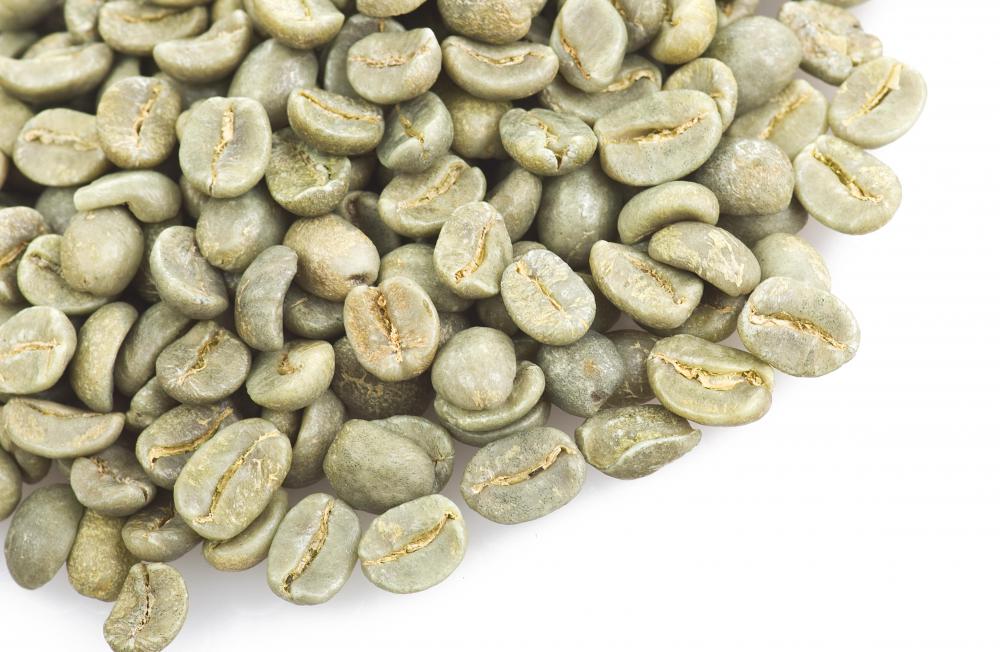At WiseGEEK, we're committed to delivering accurate, trustworthy information. Our expert-authored content is rigorously fact-checked and sourced from credible authorities. Discover how we uphold the highest standards in providing you with reliable knowledge.
What is Decaf Coffee?
Decaf coffee refers to any coffee in bean, ground or in prepared form that has most of the caffeine removed from it via a variety of decaffeination processes. These processes do not make decaf coffee caffeine free, but they significantly reduce caffeine amounts in the average cup of joe. Some people choose decaffeinated coffee to avoid most caffeine as per dietary recommendations, to lower jittery response, or simply out of personal preference.
The first decaf coffee styles were made in the early 20th century. The earliest methods of decaffeination soaked green coffee beans in a benzene solution, which helped remove the caffeine. This process was one of the most popular for many years, and in the US, people may recall that the Sanka® brand was made in this manner. The chemicals used were not particularly healthy though, and ultimately other processes replaced the benzene soak method.

These additional methods included using other chemicals to treat beans and remove caffeine. Alternately, repeatedly soaking coffee beans in water, called the Swiss Water Method, became an especially popular means to create decaf coffee. This method is actually nearly as old as the benzene solution treatment, and was developed in the first third of the 20th century. Today, many people prefer water methods of decaffeination since they skip the addition of chemicals and are thought purer.

For coffee purists, it may be hard to get a cup of coffee that truly tastes good and has been subject to any chemical treatment. This is a matter that is still under development, but some people argue decaf coffee tastes different. There have been some discoveries in this area that might ultimately benefit those who have a discriminating palate when it comes to coffee. For some time, people have been discussing a coffee bean that was discovered in Africa and that is caffeine free. It is being grown and developed to try to make a superior and good tasting bean for fully naturally decaffeinated coffee.

While people wait for this development, several other things ought to be noted about decaf coffee. Most important of these is that decaf really doesn’t mean uncaffeinated. Depending on degree of caffeine left, approximately five to ten cups of decaf is roughly equivalent to the average cup of caffeinated coffee. People who really need to eliminate caffeine completely, especially for medical reasons, should not see decaf coffee as a viable substitute unless a doctor approves this.

On the other hand, those who merely need to cut down can find good tasting decaf, especially where finer coffees are sold. There are continued efforts to refine decaffeination processes, and many gourmet coffee companies are sensitive to people’s desires to avoid extra chemicals. They have continued to remove caffeine from beans via the water method, or with chemical applications that are naturally derived from common foods.
AS FEATURED ON:
AS FEATURED ON:














Discussion Comments
What are the guidelines for decaf coffee and pregnancy? I know that pregnant women are supposed to watch their caffeine and coffee intake, but does this go for decaf coffee as well?
@GenevaMech- The sad fact is that the FDA has no control over coffee labeling. Unless a company says it uses the trademarked Swiss Water Method on the label, then there is no guarantee that it is decaffeinated in this process.
Your best bets are to look for Swiss water process on the label. If you cannot find it, you should try premium decaf coffee from Arabica Beans that is labeled organic. Swiss Water decaffeinated is the easiest way to make coffee certified organic. Many premium organic decaf coffees are free from chemicals like benzene.
How do I know how decaf coffee beans have been treated? I have been told that the chemical process in making decaffeinated coffee leaves residues of carcinogenic chemicals on the beans. My doctor told me I need to drink less coffee because of the caffeine, but I do not want to start drinking decaf that is just as bad. Does anyone know how to find good, gourmet coffee that has less caffeine, no chemical treatments, and is fairly tasty?
Post your comments